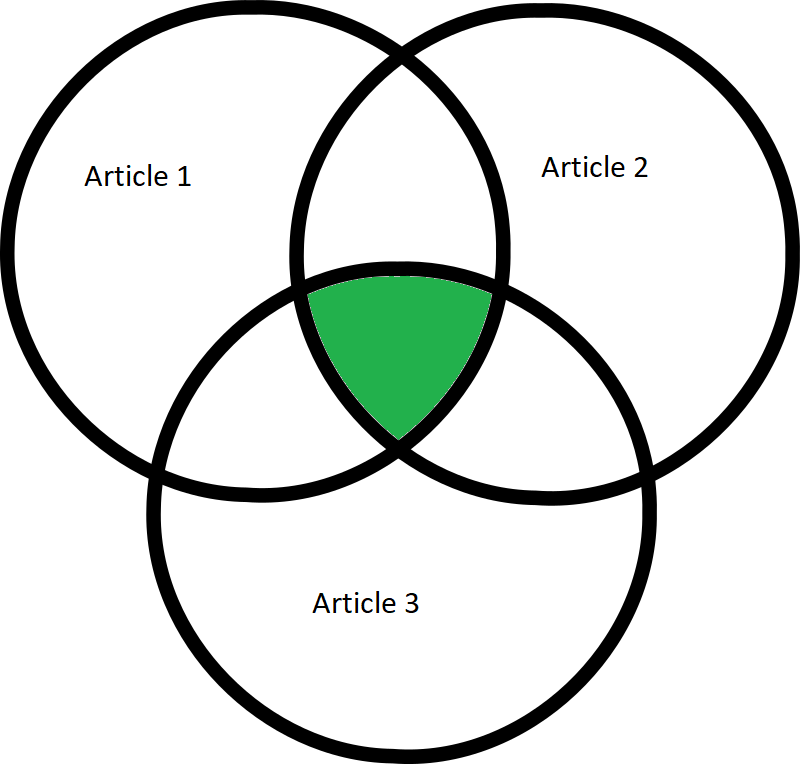- Misinformation: Information that is incomplete, uncertain, or vague
- Disinformation: The spread of purposefully false information
If you don't have time for the whole series, the second and third videos will be great on their own for helping you with your internet research:
Lateral Reading Strategies:
- Find information on the author: Google the author's name. Do they have a Wikipedia page? A LinkedIn page? A biography on a university or legitimate news site? Read through this information. What is the author's education and experience? Have they written for websites/newspapers/magazines that you are familiar with and trust?
- Check some fact-checking sites for help: Many claims have already been fact-checked for you. Try these sites:
- Triangulate: Read through at least three articles on the same subject. These three stories will probably vary in the information that is presented. Taken together though, you should have a good idea of what the truth on the issue is. Think of it like the Venn diagram below. The green area is where all the articles agree. This is the information that should be trusted.

- Find information on the website using Wikipedia: Wikipedia isn't a source you want to cite in your research paper, but it is helpful for learning about a website or news source. Oftentimes, you will find information on who funds the site or political leanings that are common.
As the online landscape changes, strategies for judging website credibility that may have once worked can become outdated. Review the list of dos and don’ts below.
| Do | Don't |
|---|---|
|
Do pay attention to the website’s main address (URL/domain name) and search for more information about that site’s reputation online (see the lateral reading strategies above). For example, cnn.com and cnnsofake.news are two very different sites! |
Don’t give too much consideration to the domain name suffix (.com, .edu, .org, etc.). Since .com and .org are easy for anyone to get, there are both untrustworthy and trustworthy .com and .org sites. Occasionally, non-profit and government websites use .com web addresses because they are easier for people to remember. |
|
Do investigate the outside sources a webpage links to as support for its claims. Are those sources themselves trustworthy? Do they contain information that supports the original claims? Or do they contain information that refutes the original claims? Be suspicious of any webpage that misrepresents the information contained in the sources it links to. |
Don’t take links to outside sources at face value and assume that links contain information that supports the claims that were made. For example, many conspiracy theory articles will link to an article from their own website, which is supposed to support the claim but really just repeats the same information. Other times, websites will link to valid sources (such as the CDC), but completely misrepresent what that source says. |
|
Do evaluate the factual claims made on the website through fact checking/lateral reading. |
Don’t give too much consideration to the quality of the web design over the content. Some well-designed sites have bad information, and some minimal-looking websites have good information. |
|
Do use context clues in the article, like the publication dates of the citations or the discussion of a recent event, to help you decide if the information is current. |
Don’t assume a page that has a current date on it has been posted recently. Some less reliable sites change dates or republish old content to make it appear relevant to current events. |

Call, e-mail, or chat with a librarian for more research assistance. We're happy to help!
(952) 358-8290
Email
Note: Your chat question may be directed to a librarian from another college when Normandale librarians are unavailable.